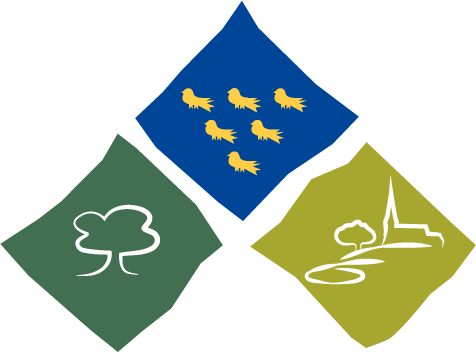Winter Fertility Customs
The month of January witnessed a couple of interesting old fertility celebrations dating back many hundreds of years. These are Wassailing and Plough Monday.
Wassailing
The term wassail derives from the Old English “wes hal”, which means “be healthy” or “be whole”, both of which meanings survive in the modern English phrase “hale and hearty”. It was the social custom at the old Gregorian Twelfth Night, viz. 17th January for people to go from door to door wassailing or toasting the occupants in wassail. This was a hot ale-based drink with spices and honey with small pieces of toast floating in it for flavour. This probably gave rise to the origins of our word “toasting”. In turn, the wassailers received drink and Christmas fare, e.g. mince pies.
The more recent occurrence of wassailing involves a fertility ritual for apple trees and probably derives from a combination of social wassailing and earlier pre-Christian fertility practices. I believe that it was first noted in Sussex in 1660 when a local clergyman gave money to boys who came to ‘howl’ his orchard, “howling” or “worsling” being local terms for wassailing.
A group of young men, usually from farms nearby, would call upon a local farmer and ask “Please sir, do you want your trees worsled?” They would then go into the orchard and chant verse and offer speeches in praise of the tree.
A common Sussex chant to the trees was:
Here’s to thee, old apple tree;
May’st thou bud, may’st thou blow.
Stand fast root, bear well top,
Pray God send us a good howling crop.
Every twig, apples big;
Every bough, apples enow.
Hats full, caps full, full quarter sacks full;
Holla boys holla!
This was accompanied by beating the trees with sticks around the trunk and any branches they could reach. It was accompanied by a shouted chorus while one member of the party gave a blast on a trumpet, usually a cow’s horn that he was carrying, and the making of as much noise as possible. Shotguns were sometimes fired into the branches. This was believed to begin the process of awakening the tree from its winter sleep and starting the sap flowing up the trunk. It was also intended to frighten away the sleeping tree demon and any evil spirits that might be lurking in the branches and to keep the tree safe until the apples appeared.
In Sussex, it was not uncommon for everyone to bow to the trees and sometimes a small boy was lifted into the branches where he would receive offerings of bread, cheese and cider, the mainstay of ordinary peoples’ diet, possibly representing the tree spirit receiving the gifts.
Finally, pieces of toasted bread soaked in the wassail were thrust up into forks in the branches or hollows and left there as offerings to the trees. In some places, some of the wassail was sprinkled around the tree trunk, though usually, wassail was then drunk as they passed a wassailing bowl around and wished health to the trees.
Although this description of the wassailing of apple trees is written in the past tense, it is still enacted in Sussex at a pub in Tarring, Worthing and at a farm at Firle near Lewes. In parts of the West Country, the heart of the cider industry, the practice is still quite common, though obviously of more of a social event.
Plough Monday
Plough Monday is usually celebrated on the first Monday after Twelfth Night which was traditionally the start of the spring ploughing season.
It is first mentioned in 14th century, but is thought to go back a few centuries earlier. Its origins are probably connected with the Vikings as it is most frequently noted in the areas where the Vikings settled, viz. Fenland, Lincolnshire and Norfolk. The custom was either brought from Denmark, indicating a probable pre-Christian fertility origin or was established as part of Dane Law as a tax gathering function.
The custom on this day was for the lads of the village who had acted the mummers play at Christmas (In Sussex they were called tipteerers) to dress themselves in special costumes but usually in white smocks or shirts, with garlands of paper flowers round their necks and sometimes topped by tall decorated hats. They would drag a plough round the village, collecting or demanding money from each house as they went. In some places, if no money was given, revenge would be taken by ploughing up the garden! The money was used to provide a feast of beef and plum-pudding. At this feast, the head of the table would be taken by one of the lads dressed in grotesque female clothing and who was always known as the ‘Mollie’ or ‘Bessie’. The tradition still survives in some parts of Britain and has been revived in others.
In some parts of the country during the 19th century Straw Bears, men or boys clothed in a layer of straw, were a familiar Plough Monday custom.
The Sunday that proceeded it was known as Plough Sunday. This was still celebrated in Wisborough Green during the fifties. On these days, members of the Young Farmers Club bought older horse drawn ploughs (even then, modern ploughs would have been difficult to get up the aisle!) into the church and these were blessed by the vicar.
